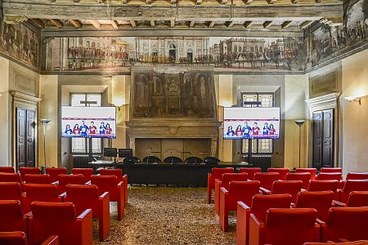Unity and diversity. An analysis of regional inequality in European and American federal countries through the equalization system from a constitutional and fiscal perspective.
The "federal dilemma", subsidiarity vs solidarity

-
Date: 11 NOVEMBER 2024 from 17:30 to 19:00
-
Event location: Sala Rossa, Palazzo Marchesini, Via Marsala, 26 - Bologna - In presence and online event
-
Type: Lectures
Each federal system has to deal with an original dilemma, which is in the essence of the structure: the balance between unity and diversity, autonomy and dependence. This “federal dilemma” emerges in the constitutional design in the crash of two main principles: subsidiarity vs solidarity; from a fiscal perspective this dilemma can be reflected throughout distributive vs redistributive effects of transfers mechanisms. In this context and with this background in mind, the following research questions arises: How much inequality is permitted in a Federation (understood as a genus of political organization encompassing a variety of species, such as formal federations and regionalization – Watts 1998; Elazar 1987, 1993, 1994b)? Is there a minimum national standard to be reached by each one of the federated units? How have Latin-American and European formal federal countries and quasi-federal countries dealt with this dilemma? Which fiscal mechanism has been implemented in order to achieve a minimum national standard? Is there mechanism of fiscal solidarity? How these mechanisms of fiscal solidarity are legally or constitutionally regulated? What principle predominates in these systems? The main aim of this project is to analyse in a comparative perspective the different mechanisms of fiscal equalisation in American Federations (USA, Canada, Mexico, Brazil, and Argentina) and European formal federal countries (Austria, Germany, and Switzerland).
Speaker
ISA Visiting Fellow - Cristian Altavilla
Consejo Nacional de Investigaciones Científicas y Técnicas - CONICET, Argentina
DO YOU WANT TO ATTEND THIS lecture?
-
In presence - Book your seat
Book your seat within November 11, 12 p.m. The places will be assigned on “first come first served” basis.
Please note that the building is not equipped so as to facilitate access for wheelchair users or people with mobility issues.
PhD students and researchers who are interested may request an attendance certificate by writing to segreteria.isa@unibo.it specifying their birthplace and date of birth.
The delivery of the attendance certificate requires the attendance of at least 70% of the lecture.